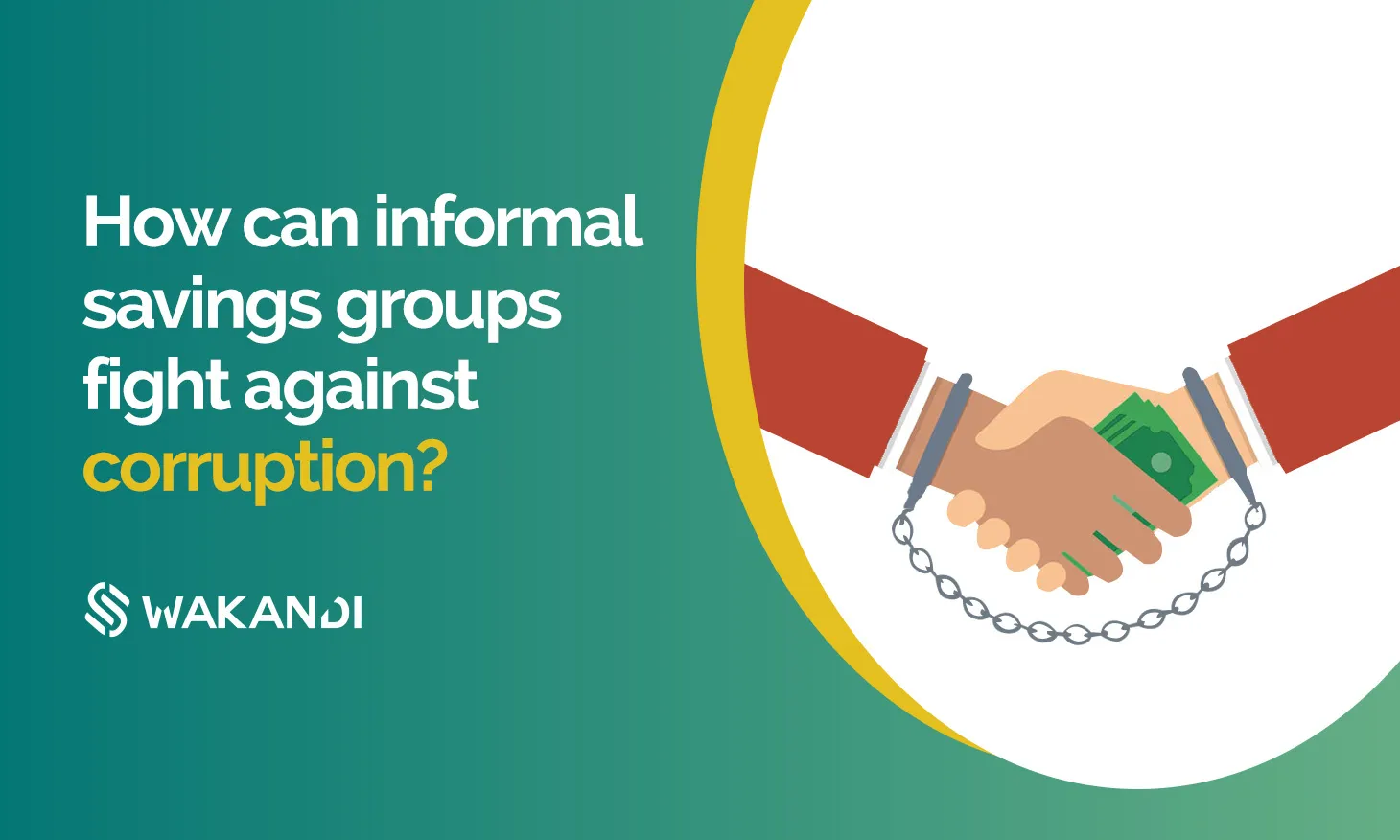How can informal savings groups fight against corruption?

The financial sector has expanded dramatically in recent years in Africa. Many households, farmers, and self-employed in Africa countries have access to financial services formally and informally. Moreover, mobile money has made big waves, supporting more than 50% of transactions happening every year.
With the fast-moving financial sector, corruption has remained a chronic problem for the people. Many say that it is part and parcel of daily life. The issue of corruption is even drastic for informal financial groups (IFGs), where cash remains a popular mode of transactions and no proper records are maintained.
Why is corruption a big issue?
Dependency on cash – Though savings groups use mobile wallets or bank accounts to save contributions, members tend to use cash to send contributions and avail loans. They meet on a weekly/monthly basis to make their contributions in cash.
Lack of proper records – Poor record keeping is one of the top three issues IFGs face daily. This leads to many problems related to incorrect records, missing transactions, double posting and more. Almost 70% of IFGs in Tanzania (popularly called SACCOs) believe that they require additional skills in record-keeping.
Manual processes – IFGs mainly rely on manual procedures for sending and receiving money, recording transactions, managing loans, calculating interest rates and instalments, etc. People are moving towards digitization but at a slower pace.
IFGs to fight against corruption with technology
The hidden nature of corruption makes it difficult for governments and businesses to tackle it. However, fighting against corruption is possible in this digital age. Adopting technology and preferring digital channels over manual processes can reduce the level of corruption amongst the financial groups.
Complicated procedures and manual processes typically lay the ground for corruption. On the other hand, digital processes reduce the chances of paying bribes. That said, moving away from manual processes can significantly reduce the chances of corruption. Using digital channels for payments and record-keeping will offer clear and transparent information to every member. All transactional details can be readily available to the admins as well as the regulatory authorities.
A new wave of fintech startups and technology companies with banks are trying to digitize the IFGs. Wakandi is one of the companies that aims to leverage technology and digital systems to make their processes fast, secure, and efficient. That is why we have launched a Credit Association Management System (CAMS) – a unique system to empower thousands of IFGs with technology.
- Speed – Enable digital transactions and systems for instant transactions and reconciliation.
- Security – Brings better protection against theft and frauds as cash transactions will be eliminated.
- Innovation – Open doors to technology and innovation.
- The path to formal finance – CAMS creates a hub of financial data that can be shared with banks and financial institutions. This data can help them extend their reach to further markets and build personalized products and services.
Conclusion
Africa is on an upward track in terms of digitization. It opens up new ways to fight against corruption and provide governments and authorities with a way to engage with citizens and entrepreneurs for better transparency and accountability. Transforming internal processes and technology innovation are the areas that we must explore to further reduce corruption risks.

Comments